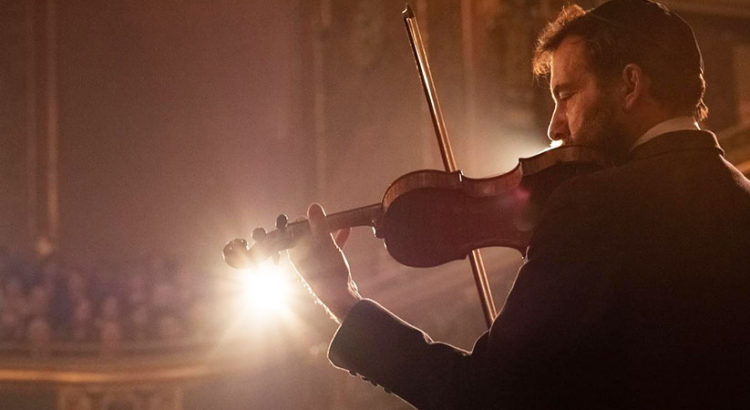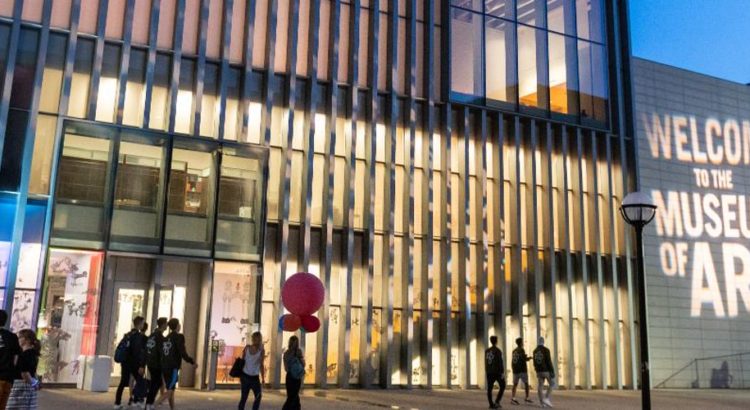In the first reading of the Helen Zell Visiting Writers series, I sat excited and enthralled to witness the arrival of poet Gala Mukomolova. It was lovely being back in the UMMA Auditorium for the 2019 inception of the series, with the warm light suspended by translucent threads, giving it the quality of floating Hogwarts candles; the dimness of the room lulling me into a kind of aesthetic trance; poetry washing onto the shores of my mind. And so entered Mukomolova’s work into one of my beloved programs at Michigan.
In her reading, Mukomalova read from her debut poetry collection Without Protection. Mukomolova has many identities she explores in her work. She is Russian, Jewish, refugee, New Yorker, lesbian. These intersecting identities ground her work into her own universe, and she enters this space she has invented with the agency, authority, and recognition of her own power. I am currently unraveling what it means to write about your identity in your work– how much of it seems like “material” you’re performing, and how much is actually authentic. I haven’t read Mukomolova’s work in full and am only acquainted with the work she read to us, but it seems to me that she enters her poetry as her own creation. When she writes in Russian, or explains deeply personal situations, she seems to explain the narrative not for us, but for herself; the work, in some ways, seems to be the many aspects of her identity in conversation with the other parts in one place. To me, this seems wildly liberating, not the puppeteeting that might structure other inauthentic works.
Mukomalova’s poetry collection explores the story of the old Russian fable about the young girl named Vasilyssa trying to escape from the witch Baba Yaga. Her power, bravery, and divine feminine energy guide her to enter Baba Yaga’s home Without Protection. The collection includes a multiplicity of narratives colasing into one, delicately woven together, the old and new and personal and universal all in conversation. One sentence will be about the story of Baba Yaga, the next an anecdote from Mukomalova’s life, another an advertisement on Craigslist. It’s a brilliant tapestry of multiplicity and power that Mukomolova crafts in her poetry.
There is, moreover, a definite belief in the power of women, and more specifically, in the sexuality of women. Mukomalova writes:
I want everything. I want to be fucked like the wife who waited
for her soldier’s return, fucked: the island, the sand, the nymph,
the lust that strands him. Fucked: the witch’s sword against his dick before she
opens. Ill deep throat, I’m sayin’
it’s April, 72 degrees, I’m in love and wearing platforms. This song is just like
my first years in America, the jump off. What I mean is reckless, performing
a kind of hope.
Mukomalova’s poetry is unabashed about desire, about the complex highs and lows of wanting and not having, or wanting and having and being a woman. There is an erotic energy weaved into her poetry that gives it power and shamelessness, an unapologetic ode to her womanhood and sexuality.
Overall, I enjoyed the reading very much. Rereading some of her poetry here to write this blogpost reminded me how thrilling it is to read it, and I have to admit that I enjoyed reading it more than I did hearing it. In any case, I think this makes it easier for you, dear reader of this blog post, to go out and read Gala Mukomalova’s stunning and multi-layered debut poetry collection Without Protection.
Sources: https://coffeehousepress.org/products/without-protection, poetry except from https://pen.org/four-poems-by-gala-mukomolova/





